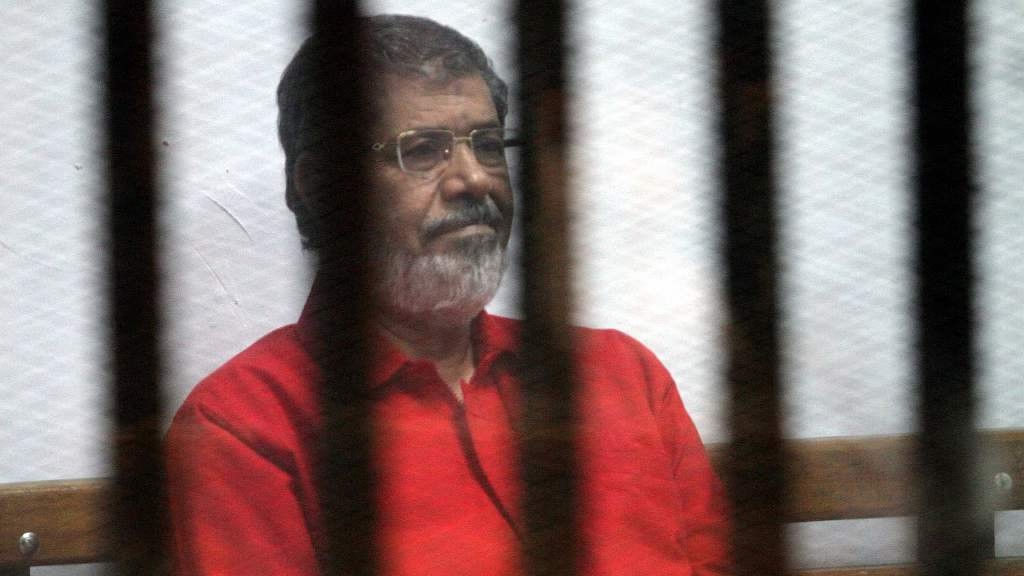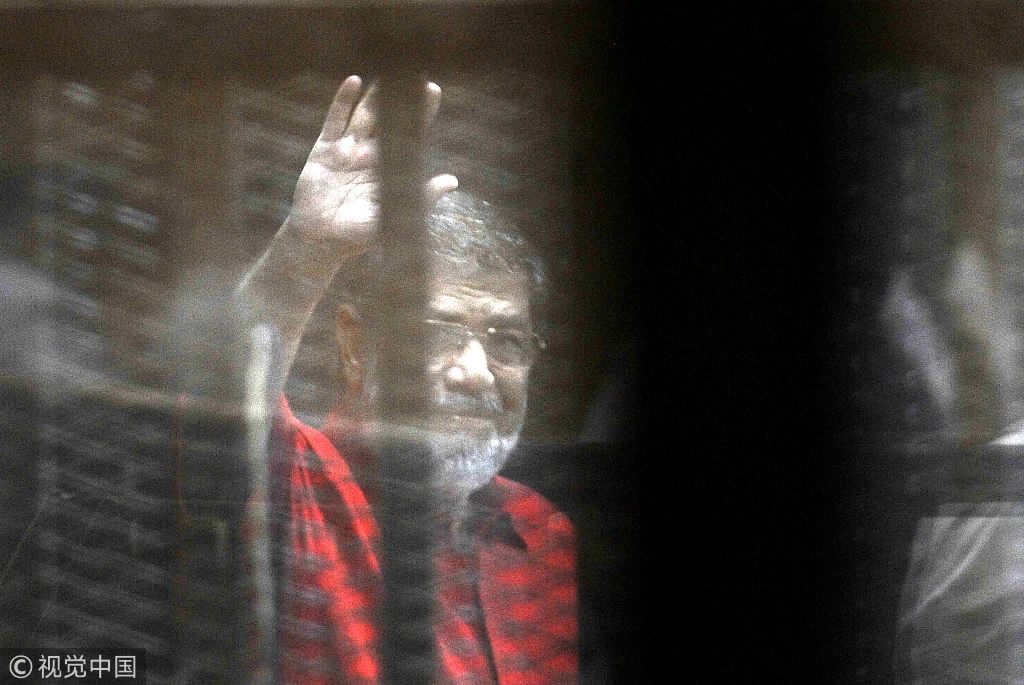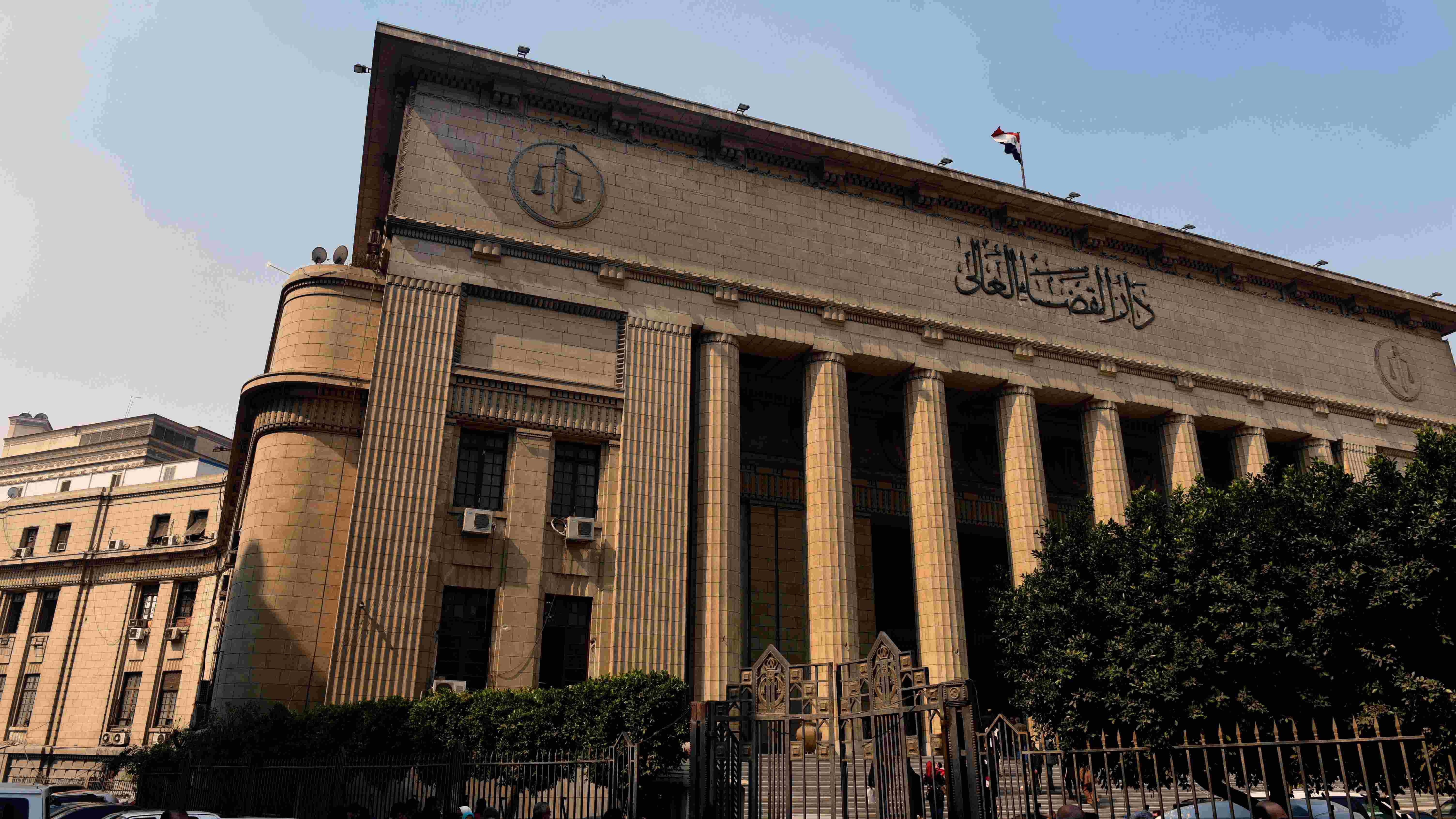
Opinions
11:01, 30-Dec-2017
Opinion: Prosecuting Muslim Brotherhood ideology
Guest commentary by Maged R. Botros

Editor’s note:
An Egyptian court on Saturday sentenced ousted president Mohamed Morsi to three years in jail for insulting the judiciary, reported Xinhua news agency, citing the country's state-run TV. Another 18 members of Morsi's Muslim Brotherhood group received the same verdict on the similar charges.
The case of insulting the judiciary is not the prosecution of the ousted Islamist president Mohamed Morsy, but rather a prosecution of the deviant ideology of the Muslim Brotherhood (MB) to which he holds. MB doesn't believe in a national state or sovereignty. In December 2012, the MB supporters encircled the Supreme Constitutional Court for eighteen days to block its sessions and terrorize its judges.
Defamation of the Judiciary, by accusing judges of corruption, is the least serious charge (case) against Morsy. He was indicted on charges ranging from espionage to murder. During the 2011 uprising, Morsy, alongside 130 other defendants, including Hamas and Hezbollah militants, were accused of organizing jailbreaks and attacking police stations and found guilty of conspiring with foreign groups to destabilize Egypt.

Egypt's ousted Islamist president Mohamed Morsy /VCG Photo
Egypt's ousted Islamist president Mohamed Morsy /VCG Photo
The MB was officially declared a terrorist organization three times in Egypt; and consequently, dissolved and banned in 1948, 1954 and 2013. The reasons for this were: terrorizing the nation; lack of patriotism and manipulation of religion in politics. Internationally, eight countries declared the MB as a terrorist organization; and many others have issued official reports raising serious suspicions of the MB activities.
Analyzing the underlying factors of the case is essential in gaining insight into the ideology of the MB organization that is widespread in 72 countries; many of which are substantially influenced by this organization. Analyzing the case allows us to understand the popular revolution on June 30, 2013 when more than 22 million Egyptians signed "Rebellion forms" and marched throughout Egypt to protest at what they considered the failed policies of Morsy and the MB.
On July 3, a national committee representing all political figureheads authorized the army to remove the president from power, and announced “A Road Map for Democracy.” The purpose of this road map was to draft a new constitution, and to conduct presidential and parliamentary elections. Since the June 30th popular revolution, the MB and their allies killed more than 950 police and military personnel and left more than 9000 injured; houses of worship were destroyed that included 165 churches and one mosque.
In the Middle East, religion is a pivotal agent of political socialization as the religious beliefs largely influence political beliefs and practices.

The Court of Cassation in Cairo /AFP Photo
The Court of Cassation in Cairo /AFP Photo
The political ideology of MB intends to have the believing population’s supreme loyalty surrendered to religious commandments followed by the loyalty to the national state. This ideological conception was crystalized for two reasons.
Firstly that faithful Muslims believe that their religious/traditional values are threatened, and believe that their secular rulers lack adequate response to their concerns. Many Muslims believe that religion is their last resort to stability and tradition. Secondly, that traditional Muslims focus on the political dimensions of religion when they confront their secular political elite.
The ideology clearly states that Islam is not only a religion but also a kind of polity or human commonwealth; in other words; the religious and political dimensions of Islam are amalgamated. There is no independent political theory in Islam; all issues related to governance are regulated by the Islamic "Sharia" (the broad religious laws and rules). The "Sharia" is a doctrine of religious, social, political, and economic domains. Politically, the mission of the state and community is to uphold faith. Fundamental Islamists believe that their mission is to introduce "Sharia" as the source of law and to Islamize all political, social, and economic institutions to establish and sustain an Islamic society.
The MB had been maneuvering for the last eighty nine years to define the nature of its movement as to whether it is a political or religious movement. If they had defined it as a political movement, they would have lost their ability to manipulate religion to make political gains.
There is no question that the above-mentioned analysis clearly explains why Morsy and the MB scorn the coded law and the judiciary as a branch of secular states.
(The author is currently the chairman of the Political Science Department and a tenured professor at Helwan University, Egypt. He is also a Research Associate at University of Manchester, UK. The article reflects the author’s opinion, and not necessarily the views of CGTN.)

SITEMAP
Copyright © 2018 CGTN. Beijing ICP prepared NO.16065310-3
Copyright © 2018 CGTN. Beijing ICP prepared NO.16065310-3